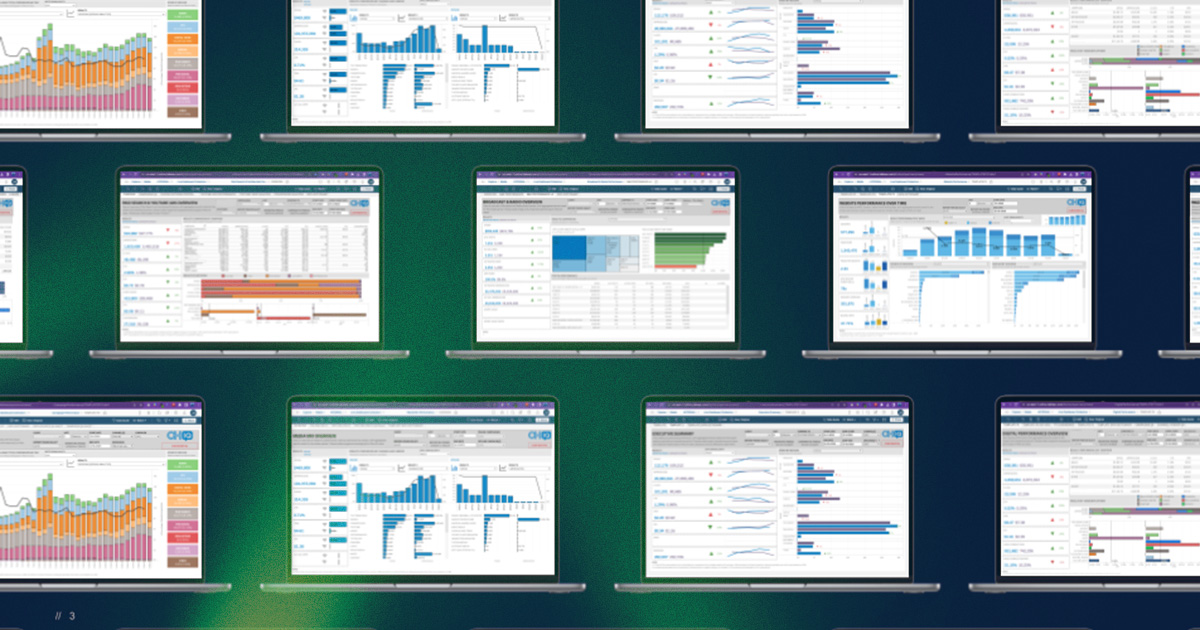News & Views

Agency Life
O.H. Cares: Celebrating Cesar Chavez Day by Giving Back
O.H. Cares, one of four of our employee-led committees, is driven by a single purpose: to promote support for the communities in which we live, through drives and volunteerism. Pairing this mission with one of our five core values, “We Collaborate,” we dedicated a day to volunteering and giving back, sharing our dedication and passion […]

Tips & Best Practices
7 Benefits of Partnering with a Brand Marketing Agency
Your team is bursting at the seams. Your business is implementing marketing tactics but isn’t guided by an overarching strategy. And writer Douglas Adams sums up your ability to get work out the door best with his famous quote, “I love deadlines. I like the whooshing sound they make as they fly by.” You’re weighing […]

Tips & Best Practices
Don’t Waste Advertising Dollars (Again)
Marketing pioneer John Wanamaker infamously said, “Half my advertising spend is wasted; the trouble is, I don’t know which half.” Like great ad copy, this quote sticks because it rings true to marketers and C-suite executives. We all wonder how the billboard, sponsorship, or third retargeting ad impacted our customers. How can we identify waste, […]

Industry News & Analysis
Top 10: Ranking Brand Presence at The WM Phoenix Open
Just as quickly as the rain came and went, so did The WM Phoenix Open. This year’s brand activations and experiences showed up (much like Saturday’s record-breaking crowd). Here are our favorites. 10. Louisiana Hot Sauce Not every hot sauce is the Official Hot Sauce of The WM Phoenix Open—only Louisiana Hot Sauce owns that […]

Agency Life
Agency Awards: Super Bowl LVIII Commercials
The Chiefs may have possession of the Lombardi trophy, but we’re giving out awards for this year’s Super Bowl ads. MVP Award—Disney + Our agency’s favorite ad and the best of the best? Disney+ took this trophy. And 30% of our agency agrees that the “Well Said” spot was the clear winner this year. With […]

Industry News & Analysis
Super Bowl Ad Trends 2024
A sea of red, Usher performing at halftime, and a chance to see Taylor Swift after every Travis Kelce play (if she can make it from her concert in Tokyo in time, but that’s a conversation for the Swifties)—Super Bowl LVIII is sure to be packed with excitement as the first-ever game hosted in Las […]

Industry News & Analysis
5 Things Brands Love About The WM Phoenix Open
There aren’t many things better than being outside on a 75-degree day, playing hooky from work, and mayyybe having a cold beverage. The magic of the WM Phoenix Open is that this behavior is not only accepted, it’s encouraged. When it comes to the WM Phoenix Open, there’s a reason it’s called “The People’s Open”—it […]

Tips & Best Practices
Traditional Media vs Digital Media: How to Determine the Best Ad Spend for Your Brand in 2024
A new year is a chance to reevaluate your brand’s marketing efforts: evaluate strengths and weaknesses, analyze competitors, and review budgets. And when it comes to budgets, determining advertising spend and where to put those dollars is more complicated than ever. With infinite content options and limited time and attention, consumers are easily fatigued by […]

O.H. In The News
New Year, Fresh Look: Welcoming Mesa Public Schools
What a way to start the new year—we’re excited to partner with Mesa Public Schools for a comprehensive marketing campaign and brand refresh. The press release below outlines this expansion of our client portfolio. O.H. Partners was selected following a rigorous selection process initiated by the Mesa Public Schools district, where the district sought a […]

Industry News & Analysis
5 Marketing Trends Brands Should Know in 2024
2023 was the year Rihanna performed the Super Bowl halftime show. It was the hottest year in history (seriously), artificial intelligence made its way into the mainstream, and Viva Magenta was the color of the year. In 2024, Pantone’s color of the year is Peach Fuzz, AI is still top-of-mind for marketers and consumers alike, […]

